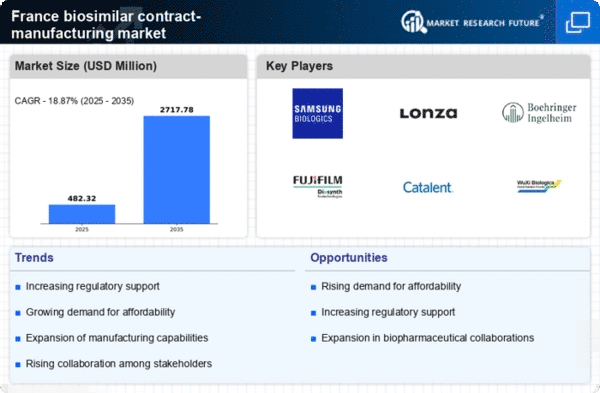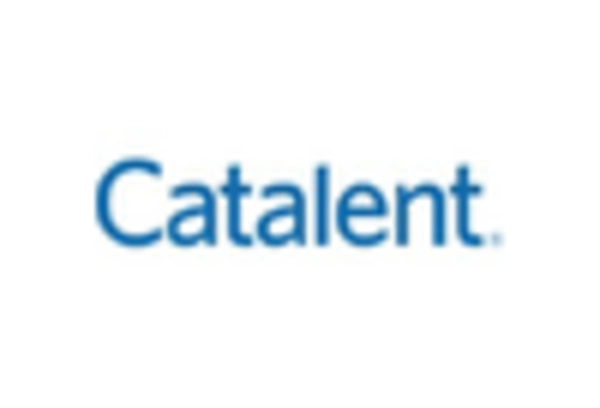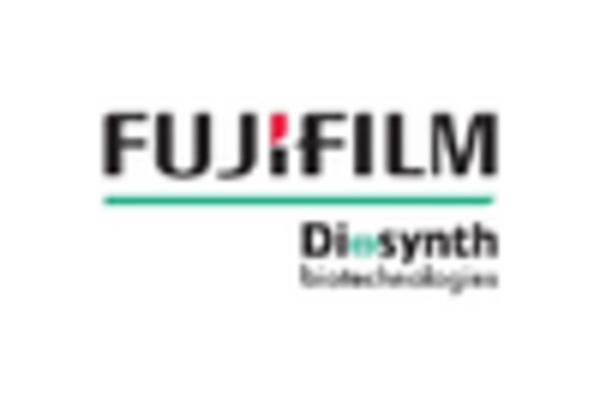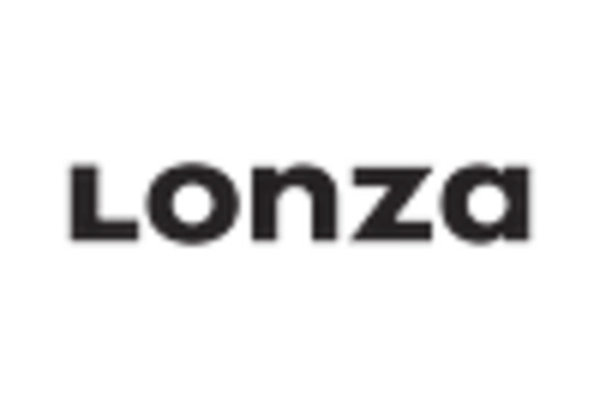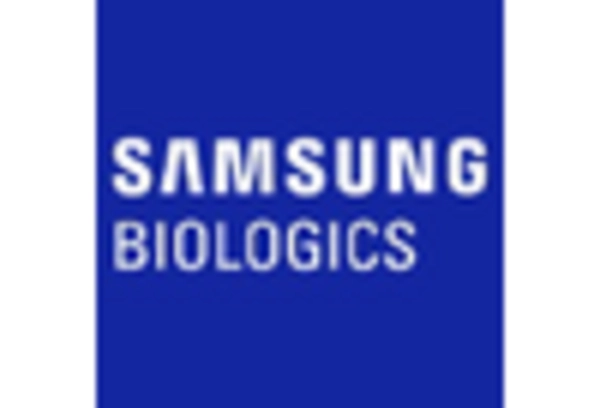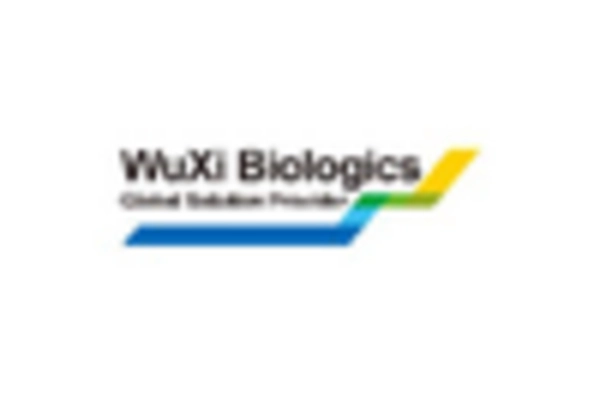Growing Patient Population
The expanding patient population in France, particularly those suffering from chronic diseases, is a significant driver for the biosimilar contract-manufacturing market. With an aging demographic and increasing prevalence of conditions such as diabetes and cancer, the demand for biologic therapies is on the rise. Reports indicate that by 2025, the number of patients requiring biologic treatments could increase by over 20%. This surge necessitates efficient manufacturing solutions to meet the growing demand for biosimilars. Consequently, contract manufacturers are likely to play a crucial role in ensuring that these therapies are produced at scale, thereby supporting the overall growth of the biosimilar contract-manufacturing market.
Increasing Healthcare Expenditure
The rising healthcare expenditure in France is a pivotal driver for the biosimilar contract-manufacturing market. As the French government allocates more funds towards healthcare, the demand for cost-effective treatment options, including biosimilars, is likely to increase. In 2023, healthcare spending in France reached approximately €300 billion, reflecting a growth trend that supports the adoption of biosimilars. This financial commitment indicates a shift towards more sustainable healthcare solutions, which could enhance the market for contract manufacturing services. The emphasis on reducing overall healthcare costs while maintaining quality care is expected to propel the biosimilar contract-manufacturing market forward. Stakeholders are likely to seek partnerships to optimize production and distribution processes.
Regulatory Incentives for Biosimilars
Regulatory incentives provided by the French government are a crucial driver for the biosimilar contract-manufacturing market. The French regulatory framework encourages the development and approval of biosimilars through streamlined processes and financial incentives. For instance, the introduction of pricing policies that favor biosimilars over originator biologics is likely to stimulate market growth. These incentives not only promote competition but also enhance access to affordable therapies for patients. As a result, contract manufacturers may find increased opportunities to collaborate with biosimilar developers, thereby expanding their market presence and capabilities within the biosimilar contract-manufacturing market.
Enhanced Focus on Biosimilar Education
The heightened focus on biosimilar education among healthcare professionals and patients is influencing the biosimilar contract-manufacturing market. As awareness of biosimilars increases, healthcare providers are more likely to prescribe these alternatives, which can lead to cost savings for both patients and the healthcare system. Initiatives by organizations and regulatory bodies in France aim to educate stakeholders about the safety and efficacy of biosimilars. This educational push is expected to foster greater acceptance and utilization of biosimilars, thereby driving demand for contract manufacturing services. As the market matures, the need for specialized manufacturing capabilities to produce these products will likely grow, further enhancing the biosimilar contract-manufacturing market.
Technological Innovations in Production
Technological innovations in biomanufacturing processes are driving advancements in the biosimilar contract-manufacturing market. The adoption of cutting-edge technologies, such as continuous manufacturing and advanced bioreactor systems, is enhancing production efficiency and reducing costs. These innovations enable manufacturers to produce high-quality biosimilars at a lower price point, which is essential in a competitive market. As the demand for biosimilars continues to grow, the ability to leverage these technologies will likely be a key differentiator for contract manufacturers. Consequently, the biosimilar contract-manufacturing market is expected to benefit from ongoing technological advancements that improve production capabilities and scalability.


